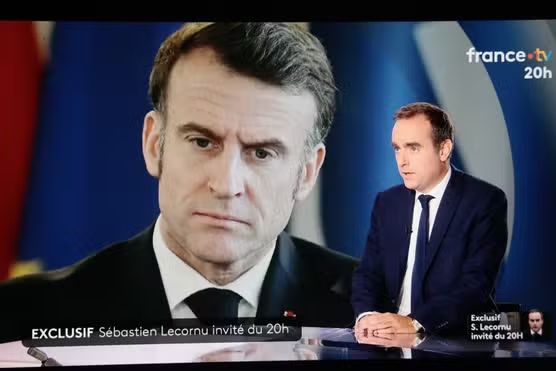
French President Emmanuel Macron will appoint a new prime minister within the next 48 hours, his office confirmed on Wednesday, October 8, following the resignation of outgoing premier Sébastien Lecornu. The decision comes amid mounting political turmoil and growing concerns about the government’s ability to pass an austerity budget.
The Élysée Palace announced that Macron “will name a prime minister within 48 hours,” expressing gratitude to Lecornu “for the work done over these last 48 hours.” The presidency added that “a path was possible” to reach an agreement on the budget before the end of the year, signaling a possible way out of months of deadlock.
Lecornu, who served less than a month as prime minister, tendered his resignation early Monday. His appointment of a pro-Macron cabinet had sparked criticism across the political spectrum, with both right- and left-wing lawmakers accusing him of deepening partisan divides.
In an interview with French television, Lecornu said he believed Macron would choose to appoint a new premier rather than call early legislative elections or step down. “It was not the time to change the president,” he stated, adding that his “mission was finished.”
The outgoing premier also dismissed calls for Macron’s resignation made by former prime minister Edouard Philippe, who urged the president to step aside and hold early presidential elections.
Lecornu argued that France’s challenges stemmed from parliamentary gridlock rather than the presidency itself. “Let’s not make the French believe that it’s the president who votes the budget,” he said.
Macron now faces a critical decision. His options include naming France’s eighth prime minister since 2017, reappointing Lecornu, or risking political instability through snap elections. With his approval ratings at record lows and allies increasingly distancing themselves, Macron’s political isolation has become starkly evident.
The current crisis erupted over the government’s austerity budget, which has faced stiff opposition in parliament. Macron had tasked Lecornu with securing consensus by Wednesday evening, a mission that ultimately proved impossible.
The resulting impasse has intensified fears of legislative paralysis just as France grapples with slowing economic growth and growing public frustration over pension reforms.
Lecornu hinted that the next government could take a more technocratic form, focusing on stability and governance rather than electoral ambitions. “We need a team that rolls up its sleeves and solves the country’s problems until the presidential election,” he said, suggesting that cabinet members should not seek office in 2027.
The outgoing prime minister also acknowledged the challenges ahead, particularly regarding Macron’s most controversial domestic reform — the pension system. He suggested reopening debate on lowering the retirement age but warned that suspending the measure could cost up to €3 billion by 2027.
As France waits for Macron’s decision, political analysts say the choice of the next prime minister will determine whether the president can regain authority or sink deeper into crisis. For now, the Élysée remains tight-lipped, and the country braces for yet another turning point in Macron’s troubled presidency.